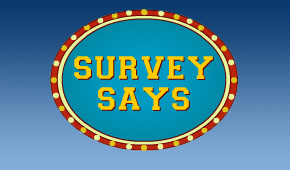I read another thoughtful post by Leo Babauta on the Zen Habits blog about the subject of practice. No, he wasn’t writing about a law practice, but I thought his message of “practicing” to effect improvement applied as much to a law practice as to anything else. Plus, I like the play on words.
We are what we repeatedly do. We are the sum of our habits. If we want to change who we are, we have to change what we do.
Change begins with awareness. If you didn’t say “thank you” to the new client who just hired you (you’d be surprised at how many attorneys don’t), reading this sentence made you aware that you didn’t and also aware of how important it is. (Your mother will tell you, it’s one of the most important things you can do.) If you usually say thank you, but for some reason didn’t do it last time, there is room for improvement. The standard of excellence isn’t saying thank you most of the time, but every time.
Now that you are aware, make a decision to change. Then, practice your new habit. With something as simple as saying thank you, you might only need to be reminded. Write it down on your intake sheet, use a post it note, put it on your calendar, whatever you need to do to remember to always say thank you.
Also be aware of what happens when you get it right. Watch your new client’s face as you look him in the eye, shake his hand, and sincerely tell him how much you appreciate having him as a client. Tell him you’ll take good care of him. Let the handshake linger a few seconds longer. Give him your full attention. Say thank you, and mean it. You’ll see some of the tension leave his face as he comes to realize that you really do care.
Your law practice is a collection of habits. What you (and your staff) regularly do and how well you do it defines you, distinguishes you from other lawyers, and plays a big role in determining your success. There are big habits and many small ones and they all matter.











